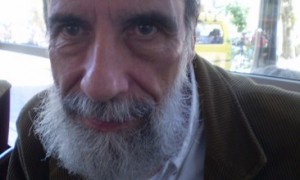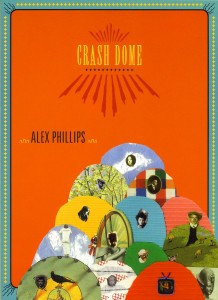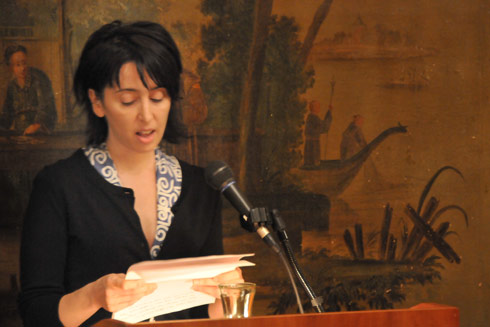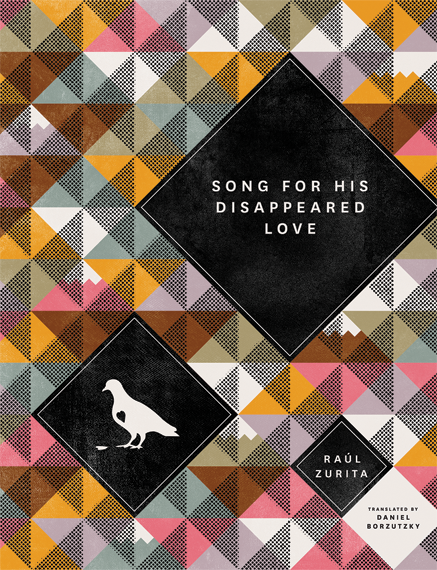Get Me Up Close To the Lives of Others
Anytime an essay’s title riffs on a variation of “The Problem With [insert perceived source of a problem],” there is likely to be a problem. It is a provocative way to begin a conversation, surely, and provocation is often useful to instigate discussion but when there’s “a problem” with something, vague generalizations are likely to follow. In the Sunday Book Review this week, Neil Genzlinger wrote an essay, “The Problem With Memoirs,” where he takes issue with this “age of oversharing.” He writes, “There was a time when you had to earn the right to draft a memoir, by accomplishing something noteworthy or having an extremely unusual experience or being such a brilliant writer that you could turn relatively ordinary occurrences into a snapshot of a broader historical moment,” as if there should be a vetting process for who is or is not eligible to write a memoir.
For a long time, I was fairly skeptical of memoirs and did not necessarily see the utility in reading an accounting of someone else’s memories, particularly when those memories seemed to come from an ordinary life or a life not yet fully lived, as is the case for young memoirists. I understand Genzlinger’s frustration but his lament felt a bit narrow and shortsighted. When a very young person writes a memoir, I often wonder what they could have possibly learned, but that attitude is not necessarily fair, particularly because people often mistake memoirs for autobiographies and they are not the same thing. As I understand them, autobiographies recount the entirety of a life lived. Memoir, which takes its meaning from the Latin memoria, to reminisce, is about a moment or series of moments in time that might speak to something greater. Memoirs are more intimate in scope. A memoir tells a close story so it is not surprising then that memoirs are written by people of all ages, whether they have accomplished something noteworthy (a relative concept) or had an unusual experience (also relative), or not.
15 random sentences from Raúl Zurita’s Song for his Disappeared Love
15. Now Zurita – he said – now that you got in here into our nightmares, through pure verse and guts: can you tell me where my son is?
14. It’s not tough not the solitude, nothing has happened and my sleep rises and falls as usual.
13. Now everyone is fallen except for us the fallen.
12. From there the wind blew across the inexistent pampas and as it settled the massacred faces became visible, Amen.
11. For his disappeared love he went form hole to hole, grave to grave, searching for the eyes that don’t find.
10. Everything dies sucking itself.
Craft and the City: Writer as Flâneur

A while ago, Lily pondered the flâneur in this post, and in the comments section Ken referenced Nassim Taleb, and it seems that interest in the flâneur, like the figure of the flâneur itself, meanders around the consciousness of many of us, possibly. There is something perennially appealing and perhaps romantic about the flâneur–the apartness, the deliberate purposelessness–and I remember that it took, for me, reading Benjamin’s The Arcades Project to understand Baudelaire (the man and the work) in a more complete and meaningful way. Some years ago I wrote an essay (whose title is the title of this post) that sought to explore the idea of text-as-city and reader as flâneur, and then, by extension, the work of writing as its own kind of flânerie. (Really wanted to publish it as Flânerie O’Connor, but then I would’ve had to punch myself in the face really hard. And also get it published.) Anyway, here are some excerpts/cut-ups from that essay:
Belladonna * at AWP!
I’m overwhelmed by how jam-packed with goodness AWP is this year! Belladonna * are going to have some pretty amazing events, which you all should attend! Here are the details:
Belladonna * is part of Table X at the conference bookfair:
ROW I1 – I11 and I28 – I36
AWP BELLADONNA EVENTS:
Friday, February 4, 2011; 4 – 6 pm
SAYING IT:
A Walking Poem Against Censorship
JOIN US for a march & speak-out against the silencing of voices that want & need to be heard and a celebration of voices, of our voices, of your voices. Bring signs, texts, images, costumes!
Location: GATHER outside Marriott Wardman Park Hotel (conference hotel) on corner of Connecticut Ave & Woodley Road NW, Washington DC.
MARCH on Connecticut Ave to Henry Wadsworth Longfellow Monument at M Street NW for SPEAK-OUT, reading, breaking of silences.
Friday, February 4, 2011; 6:30 pm
PROSE EVENT:
Reading and Conversation with Bhanu Kapil, Eileen Myles, & Vanessa Place
The first of four Belladonna* Collaborative PROSE EVENTS: a reading and conversation with prose writers who write at the intersection of fiction and the essay, producing texts that are urgent and often unclassifiable.
Limited edition chaplets available!
Location: Hamiltonian Gallery;1353 U Street, Suite 101; Washington DC
Directions: Half block away from U Street / Cardozo Metro stop at 13th St. Take the Red Line from Woodley Park, transfer over to green line at Chinatown/Gallery Place, and get off at U Street. Or a 15 minute cab from AWP.
Raúl Zurita @ AWP

It’s hard to keep track of anything if you’re going to AWP, but here’s one I’m making sure not to miss: Raúl Zurita reading and in conversation Friday at Noon in support of his new book from Action Books, Songs for His Disappeared Love. From Johannes: “This is like getting Neruda to the fucking AWP. This guy spent 6 weeks in a shed being tortured following the Pinochet coup.” More info and locations here.
While you’re at it, come by and say hello as a bunch of us from HTMLGiant will be at a monster table chillin.
What other events are worth seeing?
SPIRALS ARE THE MOST CONSCIOUS SHAPES BECAUSE THEY OBSERVE THEMSELVES
 Factory Hollow Press and Alex Phillips have, for me, some specific experiential associations with the good writers of Massachusetts and the state itself, specifically the Factory Hollow Pond in Amherst. Because I don’t know anything else called Factory Hollow, I can say that these two entities alone—the collective responsible for creating Phillips’s book and the body of water in the general area where I was then poet-socialize-learning—created in me a rarely literal cognitive dissonance between language and place, seen and scene, a subject not implicit in Phillips’s debut book, but which tangentially gets built around its content, and rapidly.
Factory Hollow Press and Alex Phillips have, for me, some specific experiential associations with the good writers of Massachusetts and the state itself, specifically the Factory Hollow Pond in Amherst. Because I don’t know anything else called Factory Hollow, I can say that these two entities alone—the collective responsible for creating Phillips’s book and the body of water in the general area where I was then poet-socialize-learning—created in me a rarely literal cognitive dissonance between language and place, seen and scene, a subject not implicit in Phillips’s debut book, but which tangentially gets built around its content, and rapidly.
This past summer I attended the Juniper Summer Writing Institute and took a one-shot class about James Tate’s poetry and what people think about it. Alex instructed and was pretty great about presenting and depicting the positions of what he considered Tate-hater’s flawed reasoning and Jim’s actual poetic importance in just a two hour session. Later, Alex read at the nightly readings from Crash Dome. He dropped his water bottle and then said he’d just start from wherever and opened the book. READ MORE >
January 31st, 2011 / 11:51 am
A Conversation with Deb Olin Unferth

Deb Olin Unferth is the author of Minor Robberies, a collection of stories, and Vacation, a novel, both published by McSweeney’s. Her new memoir, Revolution: The Year I Fell in Love and Went to Join the War, has been excerpted in Harper’s and The Believer. It will be published tomorrow in hardcover by Henry Holt.
MINOR: You left college in 1987 to join the Sandinista Revolution. You’ve written plenty between then and now, but not this story. Why did it take so long to decide that this was a subject for a book, and then to write and publish the book?
UNFERTH: I was very self-conscious about writing a memoir. For many years I wasn’t sure if it was a form with enough intellectual energy, which I now know was silly, since I’m very excited about memoirs and feel like they have tremendous intellectual energy. It was probably just an excuse for me. Also, I think maybe the story wasn’t over yet? Maybe I had to live a little more to figure out what the story was. Also I think I’ve struggled as a writer to figure out how to open up and reveal myself. Writing my novel, Vacation, helped me figure out how to do that, and afterwards I was ready to jump into the memoir. People had been telling me to write up my “revolution story” as a memoir for years. Tao Lin mentioned it to me I don’t know how many times. Also Nate Martin.
MINOR: What was the thing you figured out that allowed you to open up and reveal yourself more than you had in the earlier stories?
UNFERTH: I started out as a philosophy major. And I’ve always had an interest in form and in more intellectual styles of fiction writing. I think I was afraid to write with bald emotion, I thought it was too feminine or something. I think the breakthrough came when I read Chris Ware. I read that big red book of his, the compilation of Acme Novelty Library. It was very formal and right from the first pages dealt with ideas and theories about art and philosophy, and yet it was one of the most emotional books I’d ever read. READ MORE >
January 31st, 2011 / 12:00 am
Coming Soon

Nephew, an imprint of Mud Luscious Press, publishes raw & aggressive pocket-sized titles in limited-editions. Readers will have exactly three months from the first day of sales to purchase one of 150 available copies. Once all 150 copies are ordered or when we reach three months of sales, whichever comes first, that title will immediately print & ship. There will be no subsequent editions & only e-galleys will be available for reviewers. Titles will also not be revealed until their sales period opens, though we are willing to give you a peek of the first:
“It beguttons the buttoning of alarms or the on of the radio. Somewhere pianoish, Rachmaninoffish. Awake. A little chilly. In the hall where the hall rolls bathroom-toward near the mirror and our donkey, a bit of trouble, of seeing himself clearly. Nevermind that. He dabs drips which are of a muskier something. The mezzo-soprano sang, then bang, ended, the audience sang, off with their pointed hats.”
XXX XXXXXX XXXXXXX by XXXXX XXXXXX, coming very soon.



